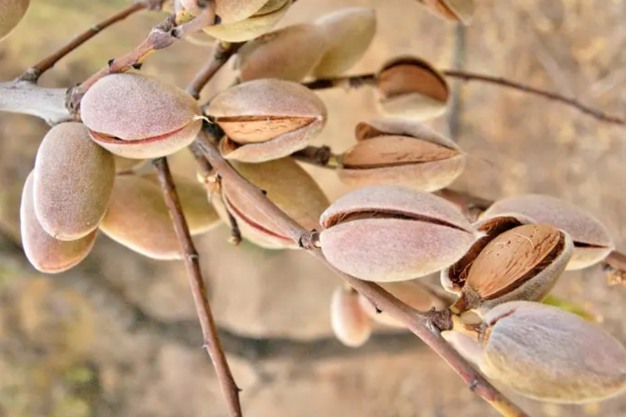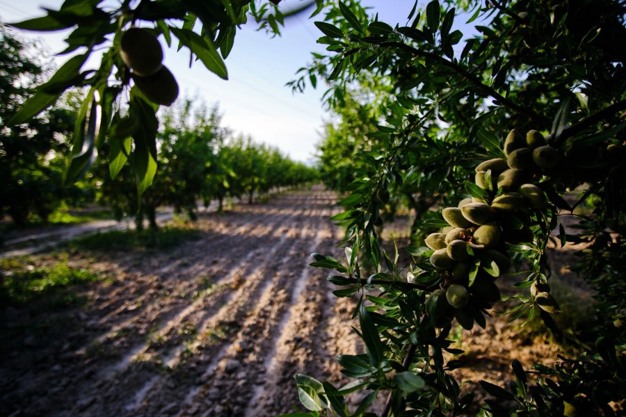The almond harvest in Greece is already over, but the crop is being kept in warehouses since there are still stocks from last season in the markets. According to Mr. Thymios Kasoumis, a farmer and president of Almoland, an almond and nut agricultural cooperative in Lamia, these stocks will be gone by mid-October and then the trade of the new Greek almonds will begin. However, this year's almond harvest in Greece ended up providing a very low volume of fruit.

As Mr. Kasoumis explains: "Not only in Lamia, but everywhere in Greece the almond production was very challenging. In our region, Lamia, the hectare yield was 70%-80% lower compared to last season. There were even farms completely devoid of almonds." This development has a lot to do with the widely chosen variety, Fyrania -an old variety, which is susceptible to the adverse climate conditions, like the frost waves of the past winter. "On the other hand," says Mr. Kasoumis, "the modern varieties have hardly been affected at all. For instance, our cooperation has invested in the self-compatible and weather-resistant variety Marta, so we didn't face production decrease. Moreover, the oldest trees on our farms are only six years old. Thanks to these, they are robust and thus we mark constant production growth during the last years."

However, even this limited success in this year's Greek almond cultivation has been marked by elevated production costs. "The cost has been increased due to the high irrigation needs during summer," states the Greek grower adding that "on the other hand, the weather during harvest was sunny and warm, thus providing the opportunity to dry our fruits in a natural way and avoid the extra cost of drying technologies." As for the prices, Mr. Kasoumis says that "last season Fyrania was sold by growers at 6,50 euros/kg and the self-compatible varieties at 5,50 euros/kg. The discussion among most of the market players at the moment is about 0,50 euros increase compared to that, but pressure comes constantly from the side of big buyers for lower prices."
For more information
Thymios Kasoumis
Almoland
Tel: +30 22311 81040
Mob: +30 69747 22820
almondscoop@gmail.com
www.almoland.com
